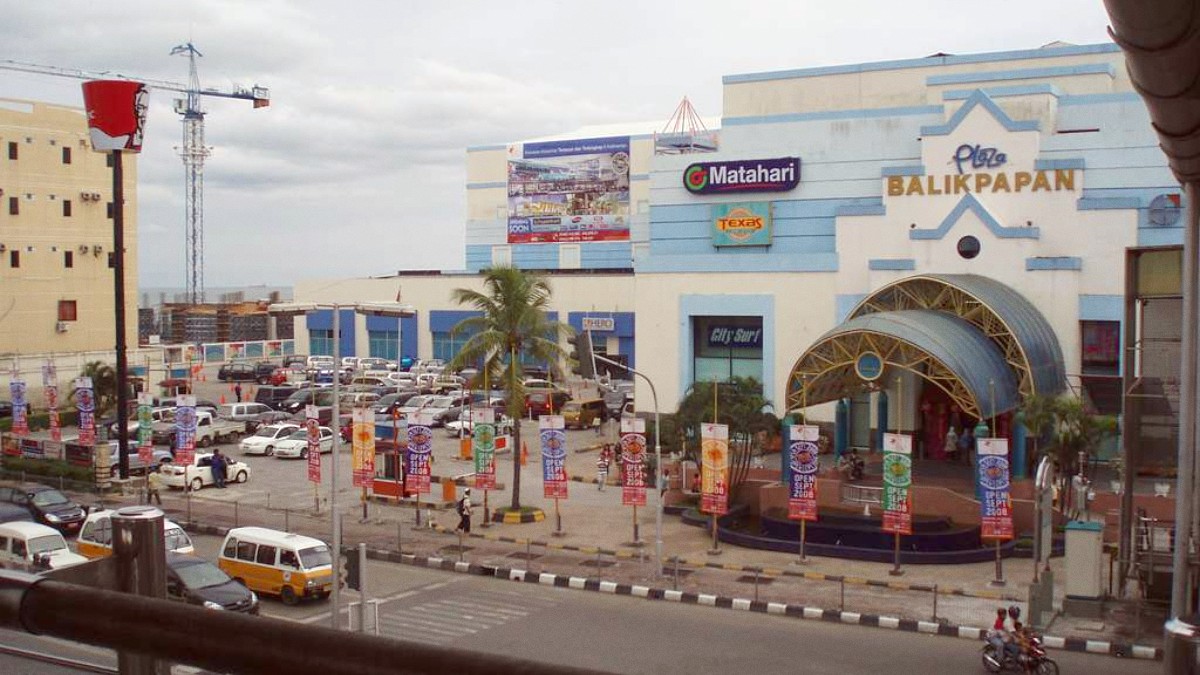
Kalimantan, Indonesia
Balikpapan pulsates with a quiet energy, a testament to its role as an economic powerhouse in East Kalimantan. Yet, beyond the corporate veneer, a warm, welcoming city awaits travelers willing to explore. You can spend your mornings spotting proboscis monkeys in a mangrove sanctuary and your evenings enjoying fresh-caught seafood by the shore. The city's relatively low tourist footprint fosters more genuine interactions with locals, presenting insights into everyday Indonesian life that are hard to find elsewhere.
Its natural deep-water harbor made it attractive for oil and gas exploration, shaping its development into a modern port city. The waters off Balikpapan Bay are part of a larger marine ecosystem.
Inland, the landscape transitions into dense rainforest. The city sits relatively close to Samarinda, the provincial capital, and the new national capital (IKN), transforming the surrounding region. It is well-connected by air as a hub for regional Borneo travel.
Balikpapan's history links inextricably to the discovery and exploitation of oil. Its transformation began in 1897 with the discovery of oil by Mathilda, a drilling rig operated by Royal Dutch Shell. This event initiated Balikpapan as an industrial center. The city rapidly grew as a refinery town, drawing laborers and settlers from across Indonesia and beyond, yielding a multicultural character from its early days.
During World War II, Balikpapan's strategic importance as an oil hub made it a target. The Japanese occupied the city in 1942, seizing control of its oil fields and refinery. Fierce battles ensued during the Allied re-capture in 1945. The city sustained extensive damage. Remnants like Japanese bunkers still exist, standing as somber reminders. Post-independence, Balikpapan rebuilt and continued its role under Pertamina, solidifying its position as an economic engine. Its development brought infrastructure, modern amenities, and a diverse population. This history is a narrative of industrial growth, migration, and strategic geopolitical importance, centered around oil.
Mathilda drilling rig discovers oil, beginning Balikpapan's industrial identity.
City becomes a target due to oil importance, leading to occupation.
Fierce battles result in extensive damage as Allied forces regain control.
The city rebuilds and resumes its major oil production role under Pertamina.
Continuity solidifies its position as an economic engine for East Kalimantan.
Balikpapan, with a population exceeding 700,000, features a well-developed urban environment contrasting with Borneo's wild expanses. It operates as a bustling port city, a hub for Indonesia's oil and gas industry, and a significant gateway for regional tourism and business. The city maintains a good standard of infrastructure, boasting a modern international airport, well-paved roads, and a range of accommodation options.
The urban landscape displays contemporary shopping malls, a selection of hotels ranging from budget-friendly guesthouses to international luxury chains, and a diverse culinary scene.
For those interested in wildlife, Balikpapan makes possible convenient access to conservation centers and natural habitats where you can encounter proboscis monkeys, sun bears, and even orangutans on day trips.
Its charm resides in its practicality, its cleanliness (often lauded as one of Indonesia's cleanest cities), and its friendly local population. It presents a chance to see a working Indonesian city, comprehend its economic drivers, and then easily transition into the natural beauty defining Borneo.
The local cuisine emphasizes fresh seafood, mirroring its coastal identity, and street food culture thrives, presenting affordable and flavorful experiences. Balikpapan is not a city designed solely for tourism, but it is a city that accommodates travelers well. It functions as a pragmatic and comfortable starting point for adventures into Kalimantan, or as a self-contained urban escape with a touch of nature.
Opportunities to spot proboscis monkeys, sun bears, and orangutans.
Fresh-caught seafood and a street food scene.
Modern shopping malls and a selection of comfortable hotels.
Balikpapan is not a city designed solely for tourism, but it accommodates travelers well. It presents a pragmatic and comfortable starting point for adventures into Kalimantan, or as a self-contained urban escape with a touch of nature.